Resources
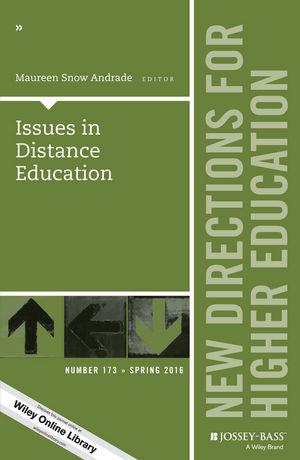
Click Here for Book Review Abstract: In this environment of disruptive technological change, higher education institutions must determine whether they will develop and offer technology-supported, hybrid, or online courses and degrees, which courses and degrees, how many, for whom, and for what purpose. They must make decisions about development models and design, processes, costs, and student and faculty support. In this volume, the authors explore the current and future practice of distance education in higher education institutions, including: - developing an initial infrastructure to support course design and development, - revitalizing existing structures and processes for distance education, and - cutting-edge practices that innovate and lead the field. These topics help guide decision makers as they determine appropriate responses to distance learning opportunities. This is the 173rd volume of the Jossey-Bass quarterly report series New Directions for Higher Education. Addressed to presidents, vice presidents, deans, and other higher education decision makers on all kinds of campuses, it provides timely information and authoritative advice about major issues and administrative problems confronting every institution. (From the Publisher)
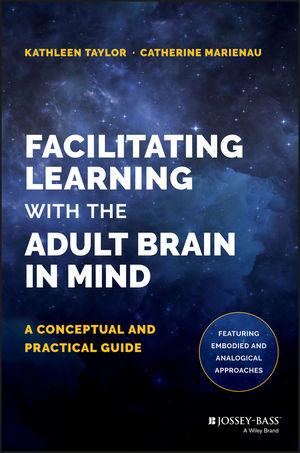
Click Here for Book Review Abstract: Facilitating Learning with the Adult Brain in Mind explains how the brain works, and how to help adults learn, develop, and perform more effectively in various settings. Recent neurobiological discoveries have challenged long-held assumptions that logical, rational thought is the preeminent approach to knowing. Rather, feelings and emotions are essential for meaningful learning to occur in the embodied brain. Using stories, metaphors, and engaging illustrations to illuminate technical ideas, Taylor and Marienau synthesize relevant trends in neuroscience, cognitive science, and philosophy of mind. Readers unfamiliar with current brain discoveries will enjoy an informative, easy-to-read book. Neuroscience fans will find additional material designed to supplement their knowledge. Many popular publications on brain and learning focus on school-aged learners or tend more toward anatomical description than practical application. This book provides facilitators of adult learning and development a much-needed resource of tested approaches plus the science behind their effectiveness. - Appreciate the fundamental role of experience in adult learning - Understand how metaphor and analogy spark curiosity and creativity - Alleviate adult anxieties that impede learning - Acquire tools and approaches that foster adult learning and development Compared with other books on brain and learning, this volume includes dozens of specific examples of how experienced practitioners facilitate meaningful learning. These "brain-aware" approaches can be adopted and adapted for use in diverse settings. Facilitating Learning with the Adult Brain in Mind should be read by advisors/counselors, instructors, curriculum and instructional developers, professional development designers, corporate trainers and coaches, faculty mentors, and graduate students—in fact, anyone interested in how adult brains learn. (From the Publisher)
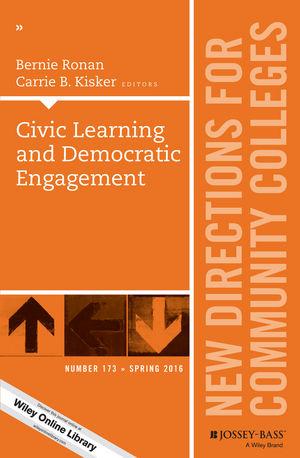
Click Here for Book Review Abstract: Concepts of civic learning and democratic engagement are central to the purpose of higher education, especially for community colleges. This volume: - establishes a philosophical framework for civic learning and democratic engagement in community colleges, - details several approaches to enhancing the civic capacities of students in these institutions, - provides best practice examples and lessons learned from practitioners in the field, and - addresses some of the sticky issues such as: What are the outcomes of civic learning programs and practices? How might civic competencies transfer to other settings? Is there a connection between civic skills and those valued in the workplace? This is the 173rd volume of this Jossey-Bass quarterly report series. Essential to the professional libraries of presidents, vice presidents, deans, and other leaders in today's open-door institutions, New Directions for Community Colleges provides expert guidance in meeting the challenges of their distinctive and expanding educational mission. (From the Publisher)

Click Here for Book Review Abstract: A Toolkit for College Professors is designed to give new and established faculty members the skills they need in order to do their jobs more effectively. Combining case studies, scenarios, practical advice, and problem-solving activities, this book offers college professors a valuable resource for excelling in the classroom, lab, studio, library, and beyond. From teaching effectively to promoting student success, facilitating collegiality with their peers, conducting research, applying for tenure and promotion, and many other areas relevant to academic life today, A Toolkit for College Professors helps faculty members achieve their goals and avoid common pitfalls along the way. (From the Publisher)
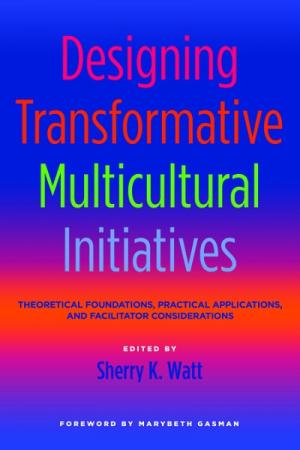
Click Here for Book Review Abstract: Higher education is facing a perfect storm as it contends with changing demographics, shrinking budgets and concerns about access and cost, while underrepresented groups – both in faculty ranks and students – are voicing dissatisfaction with campus climate and demanding changes to structural inequities. This book argues that, to address the inexorable changes ahead, colleges and universities need both to centralize the value of diversity and inclusion and employ a set of strategies that are enacted at all levels of their institutions. It argues that individual and institutional change efforts can only be achieved by implementing “diversity as a value” – that is embracing social change efforts as central and additive rather than episodic and required – and provides the research and theoretical frameworks to support this approach, as well as tools and examples of practice that accomplish change. The contributors to this book identify the elements that drive successful multicultural initiatives and that strengthen the effectiveness of campus efforts to dismantle systemic oppression, as well as the individual and organization skills needed to manage difference effectively. Among these is developing the capacity of administrators, faculty and student affairs professionals as conscious scholar practitioners to sensitively manage conflicts on campus, deconstruct challenging structures and reconstruct the environment intentionally to include in respectful ways experiences of historically marginalized groups and non-dominant ways of being in the world. The books’ focus on developing capacities for multicultural competence aligns with higher education’s increasing emphasis on civic engagement and institutional goals promote skills to interact in meaningful and responsible ways around difference, whether of people, ideas or identities. Designing Transformative Multicultural Initiatives provides guiding principles and practical strategies to successfully transform higher education to become fully inclusive and advance the success of all constituents and stakeholders. (From the Publisher)
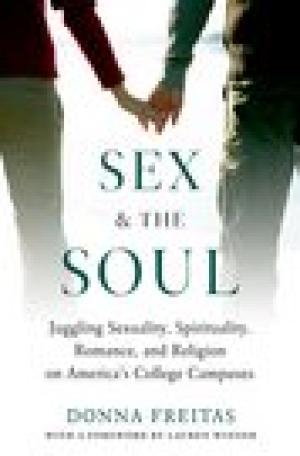
Based on dozens of face-to-face interviews, Sex and the Soul explores the sexual and spiritual lives of today's college students. Donna Freitas crisscrossed the country, visiting a range of America's colleges and universities--from public to private, Catholic to evangelical--to find out what students had to say about these highly personal subjects. Their stories will not only engage readers, but, in many cases, move them with the painful struggles these candid young women and men face. Indeed, the book uncovers aspects of college life that may unsettle some readers, especially parents. Many campuses, for instance, are dominated by the pervasiveness of hook-up culture. Moreover, many students see little connection between sex and religion, even as they seek one between sex and spirituality. Indeed, these observations hold true even at Catholic schools. Only at evangelical colleges is religion an important factor when deciding whether or not to engage in sex. But Freitas's research also reveals that, even at secular schools, students are not comfortable with a culture of casual sex, and that they do want spirituality, at least, if not also religion, to speak about what they should do and who they should try to be--not just what they should avoid doing. Sex and the Soul will offer readers the chance to hear college students speaking honestly about extremely sensitive topics, in a book that will be of great interest to students, parents, clergy, teachers, and anyone who wants to know what's happening on today's college campuses. (From the Publisher)
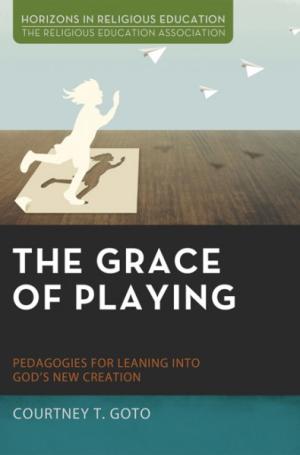
Click Here for Book Review Abstract: Believers and teachers of faith regularly know the in-breaking of God's Spirit in their midst, when revelatory experiencing unexpectedly shifts habits of thinking, feeling, and doing toward more life-giving ways of being and becoming. When the moment is right, Spirit breathes new life into dry bones. Though religious educators have much practical wisdom about facilitating learning that is creative and transformative, sharper concepts, cases, and theory can help them do it more critically and assist learners to practice openness to wonder, surprise, and authenticity. The Grace of Playing explains how we can create the conditions for revelatory experiencing by understanding it in light of playing. The notion of playing "as if" can be powerfully reclaimed from ecclesial ambivalence, casual speech, and commercial interests that often lead playing to be associated with childishness, frivolity, or entertainment. This book theorizes adults playing for the sake of faith, drawing on D. W. Winnicott's psychoanalytic theory, a revision of Jurgen Moltmann's theology of play, biblical texts, medieval devotional practices, as well as art and aesthetics that help local faith communities engage in theological reflection. Communal forms of playing in/at God's new creation provide insights into pedagogies in which learners are creating and are created anew. (From the Publisher)
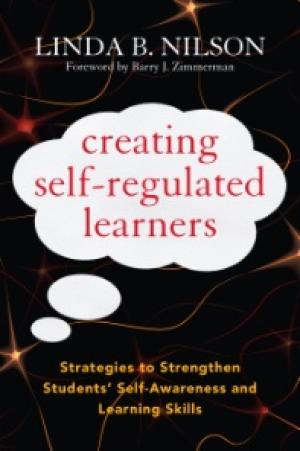
Most of our students neither know how learning works nor what they have to do to ensure it, to the detriment both of their studies and their development as lifelong learners. The point of departure for this book is the literature on self-regulated learning that tells us that deep, lasting, independent learning requires learners to bring into play a range of cognitive skills, affective attitudes, and even physical activities – about which most students are wholly unaware; and that self-regulation, which has little to do with measured intelligence, can be developed by just about anyone and is a fundamental prerequisite of academic success. Linda Nilson provides the theoretical background to student self-regulation,the evidence that it enhances achievement, and the strategies to help students develop it. She presents an array of tested activities and assignments through which students can progressively reflect on, monitor and improve their learning skills; describes how they can be integrated with different course components and on various schedules; and elucidates how to intentionally and seamlessly incorporate them into course design to effectively meet disciplinary and student development objectives. Recognizing that most faculty are unfamiliar with these strategies, she also recommends how to prepare for introducing them into the classroom and adding more as instructors become more confident using them. The book concludes with descriptions of courses from different fields to offer models and ideas for implementation. At a time of so much concern about what our students are learning in college and how well prepared they are for the challenges of tomorrow’s economy and society, self-regulated learning provides a reassuring solution, particularly as studies indicate that struggling students benefit the most from practicing it. (From the Publisher)
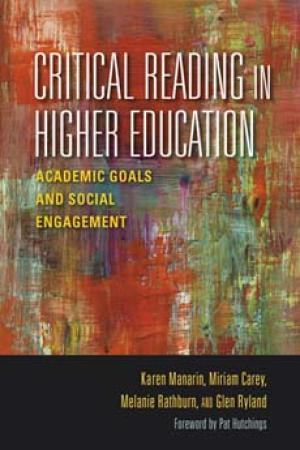
Faculty often worry that students can’t or won’t read critically, a foundational skill for success in academic and professional endeavors. “Critical reading” refers both to reading for academic purposes and reading for social engagement. This volume is based on collaborative, multidisciplinary research into how students read in first-year courses in subjects ranging from scientific literacy through composition. The authors discovered the good (students can read), the bad (students are not reading for social engagement), and the ugly (class assignments may be setting students up for failure) and they offer strategies that can better engage students and provide more meaningful reading experiences. (From the Publisher)
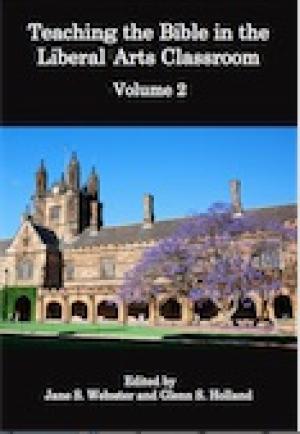
Click Here for Book Review Abstract: Eugene V. Gallagher, Rosemary Park Professor of Religious Studies at Connecticut College, writes: ‘In a context where the general value of the Humanities has increasingly come under question by those who see a college education as necessarily being directly tied to the first job that students will have after they graduate, an ability to make a vigorous case about the contribution of studying the Bible to any college student’s education is crucial for any teacher’. This second collection of essays edited by Jane Webster and Glenn Holland seeks not only to promote the role of biblical studies in an undergraduate liberal arts education, but also to suggest strategies and approaches for teaching the Bible in a range of academic situations. Combining the theoretical and the practical, this volume will be another useful source of guidance and support for teachers of biblical studies at any point in their professional careers. (From the Publisher)